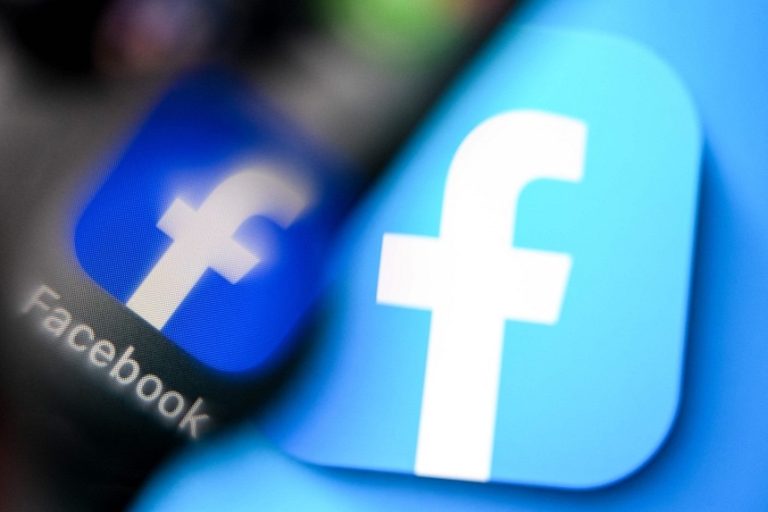
Similar Posts

WASHINGTON – A sophisticated breach of US telecommunications systems has extended to the presidential campaigns, raising questions about the group behind the attack and the extent of its efforts at collecting intelligence.
It was unclear what data was taken in the attack. The far-reaching operation has been linked to the Chinese government and attributed to a group experts call Salt Typhoon.
Investigators believe hackers took aim at a host of well-connected Americans, including the presidential candidates – reflecting the scope and potential severity of the hack.
Here’s what to know.
What is Salt Typhoon?
Salt Typhoon is the name Microsoft cybersecurity experts have given to a Chinese group suspected of using sophisticated techniques to hack into major systems – most recently, US telecommunication companies.
The moniker is based on Microsoft’s practice of naming hacking groups after types of weather – “typhoon” for hackers based in China, “sandstorm” for efforts by Iran and “blizzard” for operations mounted by Russia. A second term, in this case “salt,” is used to denote the type of hacking.
Experts say Salt Typhoon seems to be focused primarily on counterintelligence targets, unlike other hacking groups that may try to steal corporate data, money or other secrets.
What do US officials think Salt Typhoon has done?
National security officials have gathered evidence indicating the hackers were able to infiltrate major telecom companies, including but not limited to Verizon.
The New York Times reported on Oct 25 that among the phones targeted were devices used by former President Donald Trump and his running mate, Senator JD Vance of Ohio. The effort is believed to be part of a wide-ranging intelligence-collection effort that also took aim at Democrats, including staff members of both Vice President Kamala Harris’ campaign and Senator Chuck Schumer of New York, the majority leader.
How serious is this hacking?
National security officials are still scrambling to understand the severity of the breach, but they are greatly concerned if, as it appears, hackers linked to Chinese intelligence were able to access US cellphone and data networks. Such information can provide a wealth of useful intelligence to a foreign adversary like China.
To some degree, the breach represents a continuation of data collection on the types of targets that spies have been gathering for decades. In this instance, however, the sheer quantity and quality of the information Salt Typhoon may have gained access to could put the intrusion into its own category, and suggests that US data networks are more vulnerable than officials realised.
What did the hackers get?
At this stage, that is still unclear. One major concern among government officials is whether the group was able to observe any court-ordered investigative work, such as Foreign Intelligence Surveillance Act collection – a highly secretive part of American efforts to root out spies and terrorists.
No one has suggested yet that the hackers were able to essentially operate inside individual targets’ phones. The more immediate concern would be if they were able to see who was in contact with candidates and elected officials, and how often they spoke and for how long. That kind of information could help any intelligence agency understand who is close to senior decision-makers in the government.
People familiar with the investigation say it is not yet known if the hackers were able to gain access to that kind of information; investigators are reasonably confident that the perpetrators were focused on specific phone numbers associated with presidential campaigns, senior government leaders, their staff members and others.
Like the weather, hacking is never really over, and the Salt Typhoon breach may not be over either. It is also possible that the United States may never learn precisely what the hackers got. NYTIMES

WASHINGTON – Russian hackers are going after US government officials, defence workers and others in a new email phishing campaign targeting thousands of people, according to Microsoft Corp.
The hackers have sent “a series of highly targeted spearphishing emails” to thousands of people in more than 100 organisations since Oct 22, according to a blog post from Microsoft Threat Intelligence published on Oct 29.
The latest campaign will add to mounting concerns over US failures to outwit suspected Russian and Chinese hackers.
The FBI said on Oct 25 it is investigating unauthorised access by Chinese state-affiliated hackers targeting the commercial telecommunications sector.
In some of the emails that were part of the latest campaign, the senders impersonated Microsoft employees, according to the blog.
Spearphishing involves sending tailored emails to individuals, including links to malicious websites that can then steal information.
It wasn’t immediately clear how many of the attacks, if any, were successful.
Microsoft has said the attacks are perpetrated by a sophisticated Russian nation-state group it calls Midnight Blizzard, which US and UK governments have connected to the SVR, the Russian foreign intelligence service.
The company said in January that the group attacked its corporate systems, getting into a “small number” of email accounts, including senior leadership and employees who work in cybersecurity and legal.
In April, US federal agencies were ordered to analyse emails, reset compromised credentials and work to secure Microsoft accounts.
At the time, the Cybersecurity and Infrastructure Security Agency (Cisa) said the incident represented a “grave and unacceptable risk” to agencies, according to the April directive.
Cisa and US State Department didn’t immediately respond to requests for comment.
The Russian Embassy in Washington didn’t immediately respond to a request for comment. BLOOMBERG

WASHINGTON – The mastermind behind one of the biggest-ever Bitcoin heists was ordered to serve five years in prison for conspiring with his social-media rapper wife to launder money he stole by hacking into the Bitfinex exchange and grabbing cryptoassets now worth billions of dollars.
Ilya “Dutch” Lichtenstein was sentenced in Washington on Nov 14, after he and his wife, Heather Morgan, pleaded guilty last year in a scheme to hide proceeds from the 2016 hack. Morgan, known as “Razzlekhan” in her rap videos, will be sentenced Nov 18. The government recommended an 18-month sentence for her.
Lichtenstein, 37, faced as long as 20 years behind bars. But the government cited his substantial assistance that “has benefited numerous investigations.” The Bitfinex hack resulted in the theft of 119,754 Bitcoin worth about US$71 million (S$23 million) at the time. But since then, the token has surged from US$580 in 2016 to more than US$90,000 this week, boosting the value of the assets to billions.
“This is so massive, it is not comparable to other crypto crimes” based on its scale and complexity, US District Judge Colleen Kollar-Kotelly said before sentencing. Lichtenstein carried out his scheme over several years, which undermines defense claims that his actions were “impulsive,” the judge said.
Lichtenstein, a “highly skilled computer expert,” used several hacking techniques to gain access to the Bitfinex network, and then, in August 2016, fraudulently authorised more than 2,000 transactions to move Bitcoin to a cryptocurrency wallet he controlled, the government said.
He and his wife used sophisticated and meticulous money-laundering techniques to hide the stolen proceeds, including setting up accounts under fictitious identities, moving funds in small amounts, and breaking up the trail of transactions by depositing and withdrawing funds from crypto exchanges and darknet markets. They bought nonfungible tokens, gold and Walmart gift cards, according to the government.
Lichtenstein “became one of the greatest money launderers that the government has encountered in the cryptocurrency space,” prosecutors wrote in an October sentencing memo. “If the defendant were to take what he has learned from this prosecution and incorporate it into a future money laundering scheme, he would be even better-equipped to conceal his activity while monetizing his crimes,” they wrote.
Since his plea last year, Lichtenstein has assisted the government in other criminal cases, including as a government witness in a money-laundering trial involving a mixing service called Bitcoin Fog.
Other hacks
While Lichtenstein had no official criminal history before his arrest in 2022, the Bitfinex hack wasn’t his first, the government said. As a juvenile, he experimented with hacking and financial fraud, and around 2015, he illegally transferred a small amount of PayCoin, an alternative form of virtual currency, prosecutors said. The following year, he stole about US$200,000 from a virtual currency exchange, the government said.
But he also worked in legitimate businesses. While in college, Lichtenstein ran a digital marketing agency from his dorm, and after graduation, a software company he co-founded grew to 30 employees, the government said.
“His decision to use his skills for criminal ends is thus particularly disappointing, but it gives hope for continued successful rehabilitation,” prosecutors said in the sentencing memo.
Morgan attended her husband’s sentencing, along with Lichtenstein’s family. Lichtenstein expressed remorse to the judge and pledged that he would use his skills to help with cybersecurity. “I can make a real difference in the fight against cybercrime,” he said.
He asked that his wife avoid prison time. “Heather is only involved in this case because of me,” he said. BLOOMBERG

NEW YORK – T-Mobile’s network was among the systems hacked in a damaging Chinese cyber-espionage operation that gained entry into multiple US and international telecommunications companies, The Wall Street Journal reported on Nov 15, citing people familiar with the matter.
Hackers linked to a Chinese intelligence agency were able to breach T-Mobile as part of a months-long campaign to spy on the cellphone communications of high-value intelligence targets, the Journal added, without saying when the attack took place.
“T-Mobile is closely monitoring this industry-wide attack,” a company spokesperson told Reuters in an email.
“At this time, T-Mobile systems and data have not been impacted in any significant way, and we have no evidence of impacts to customer information.”
It was unclear what information, if any, was taken about T-Mobile customers’ calls and communications records, according to the WSJ report.
On Nov 13, The Federal Bureau of Investigation (FBI) and the US cyber watchdog agency Cisasaid China-linked hackers have intercepted surveillance data intended for American law enforcement agencies after breaking into an unspecified number of telecom companies.
Earlier in October, the Journal reported that Chinese hackers accessed the networks of US broadband providers, including Verizon Communications, AT&T and Lumen Technologies, and obtained information from systems the federal government uses for court-authorized wiretapping.
Beijing has previously denied claims by the US government and others that it has used hackers to break into foreign computer systems. REUTERS

SEOUL – South Korea has fined Facebook-parent Meta more than 21.6 billion won (S$20.6 million) for illegally collecting sensitive user information from nearly a million people without consent and sharing it with advertisers, the country’s data watchdog said Nov 5.
The firm, which also owns Instagram, ran afoul of laws prohibiting the use of information on political opinions, religious beliefs and people’s sex life unless the individual provides explicit consent, Seoul’s Personal Information Protection Commission added.
It added that the tech giant collected sensitive information from around 980,000 domestic users in South Korea through their Facebook profiles.
This included details about their religious beliefs and whether they are in a same-sex relationship.
The watchdog said it had confirmed that such information was provided to advertisers by Meta, with around 4,000 advertisers using it.
Meta “analysed user behaviour data, including pages liked and ads clicked on Facebook”, to create and implement targeted advertising related to “sensitive themes” such as transgender issues, homosexuality and North Korean defectors, officials said.
The commission said on Nov 5 it had decided to fine Meta 21.6 billion won.
It added that it “also ordered the company to establish legal grounds for processing sensitive information, implement safety measures, and respond diligently to users’ requests for access to their personal data”.
The decision is “significant in that they ensure that foreign operators providing global services must comply with the obligations set forth in (South Korea’s) Protection Act regarding the processing of sensitive information”. AFP

WASHINGTON – A U.S. Senate Judiciary subcommittee overseeing technology issues will hold a hearing Tuesday on Chinese hacking incidents, including a recent incident involving American telecom companies.
The hearing to be chaired by Senator Richard Blumenthal will review the threats “Chinese hacking and influence pose to our democracy, national security, and economy,” his office said, adding the senator plans “to raise concerns about Elon Musk’s potential conflicts of interest with China as Mr. Musk becomes increasingly involved in government affairs.”
Musk, the head of electric car company Tesla, social media platform X and rocket company SpaceX, emerged during the election campaign as a major supporter of U.S. President-elect Donald Trump. Trump appointed him as co-head of a newly created Department of Government Efficiency to “slash excess regulations, cut wasteful expenditures, and restructure Federal Agencies.”
Musk, who was in China in April and reportedly proposed testing Tesla’s advanced driver-assistance package in China by deploying it in robotaxis, did not immediately to requests for comment.
The hearing will include CrowdStrike Senior Vice President Adam Meyers and Telecommunications Industry Association CEO David Stehlin, Strategy Risks CEO Isaac Stone Fish and Sam Bresnick, research fellow at the Center for Security and Emerging Technology at Georgetown University,
Last week, U.S. authorities said China-linked hackers have intercepted surveillance data intended for American law enforcement agencies after breaking in to an unspecified number of telecom companies, U.S. authorities said on Wednesday.
The hackers compromised the networks of “multiple telecommunications companies” and stole U.S. customer call records and communications from “a limited number of individuals who are primarily involved in government or political activity,” according to a joint statement released by the FBI and the U.S. cyber watchdog agency CISA.
The announcement confirmed the broad outlines of previous media reports that Chinese hackers were believed to have opened a back door into the interception systems used by law enforcement to surveil Americans’ telecommunications.
It follows reports Chinese hackers targeted telephones belonging to then-presidential and vice presidential candidates Donald Trump and JD Vance, along with other senior political figures, raised widespread concern over the security of U.S. telecommunications infrastructure.
Beijing has repeatedly denied claims by the U.S. government and others that it has used hackers to break into foreign computer systems.
Last month, a bipartisan group of U.S. lawmakers asked AT&T, Verizon Communications and Lumen Technologies to answer questions about the reporting hacking of the networks of U.S. broadband providers. REUTERS
